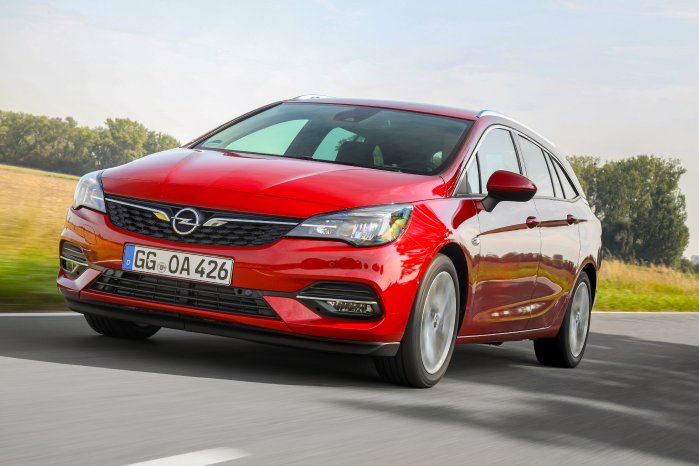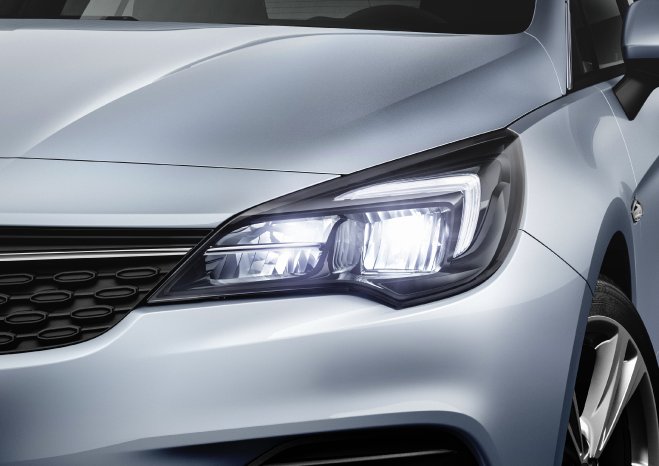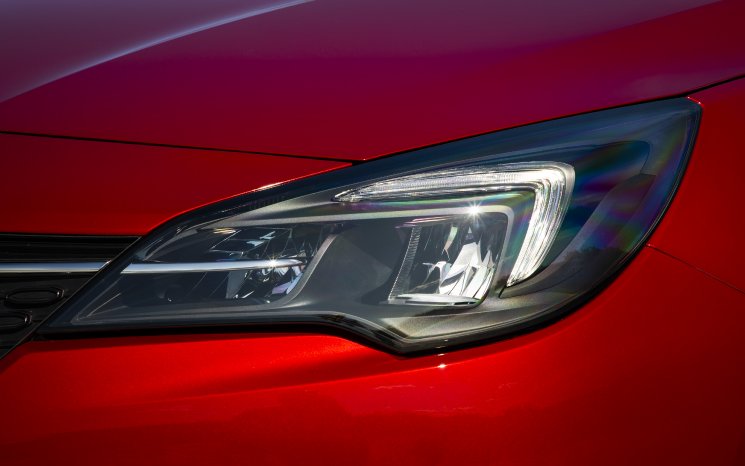- Each headlight consumes only 13 Watt on dipped beam
- Savings of up to 1.3 grams CO2 per kilometre in New European Driving Cycle (NEDC)
- Special reflector technology ensures optimum brightness
The emissions of the new Opel Corsa are very low – not only because the sixth generation of the best-selling small car is powered by highly efficient engines. The new Corsa is also optionally available with especially efficient LED lighting. Each headlight consumes only 13 Watt. That is an energy saving of 81 per cent compared with halogen, which gobbles up around 70W per headlight. But this does not mean that customers must accept compromises in light output; on the contrary, thanks to a special reflector technology, LED headlights turn night into day.
“The new Corsa and Astra continue the Opel tradition of leadership in innovation”, said Ingolf Schneider, head of lighting technology at Opel. “Our development objective was to bring optimum light with minimum consumption to our cars. In future we want to use energy-saving LED lighting throughout the vehicle.”
On average, the LED headlights on the entry-level Corsa alone save 1.3 grams of CO2 per kilometre (according to NEDC). With the petrol turbo engine it is 1.38 g/km and 1.23 g/km with the diesel (fuel consumption NEDC1: urban 5.5-3.7 l/100km, extra-urban 4.2-2.9 l/100km, combined 4.7-3.2 l/100km, 106-85g/km CO2; fuel consumption WLTP2 combined: 6.2-4.0 l/100km, 140-105g/km CO2).
The Astra five-door saves 1.26 g/km CO2 (according to NEDC). The petrol turbo scores with 1.34 g/km CO2, the diesel with 1.19 (fuel consumption NEDC1: urban 6.3-3.9 l/100 km, extra-urban 4.3-3.1 l/100 km, combined 5.1-3.4 l/100 km, 116-90 g/km CO2; fuel consumption WLTP2 combined: 6.1-4.3, 141-112 g/km CO2; preliminary figures).
Instead of measuring emissions on a dynamometer, Opel’s engineers obtain the possible CO2 savings of a light source versus halogen more efficiently with the help of a mathematical formula. The calculation considers, among other things, how much wattage each light source actually saves in comparison to halogen, as well as the fact that drivers usually only use dipped beam in darkness, which accounts for just one third of all driving. Accordingly, only one third of the total drive-duration is included in the calculation.
The one question remaining concerns the optimum light output at reduced wattage. Opel compensates for the lower electrical power of the LEDs with special reflector technology. The reflector of each headlight is shaped like a shovel so that the maximum amount of light from each LED is projected onto the road. The new LED headlights from Opel are therefore extremely efficient, not only in energy consumption but also in terms of form and light-output.
1 Fuel consumption and CO2-emission data given are preliminary and have been determined according to WLTP test procedure methodology, and the relevant values are translated back into NEDC to allow the comparability with other vehicles, according to regulations R (EC) No. 715/2007, R (EU) No. 2017/1153 and R (EU) No. 2017/1151. The preliminary values might differ from official final type approval data.
2 Fuel consumption and CO2-emission data given are preliminary and have been determined according to WLTP test procedure methodology (R (EC) No. 715/2007, R (EU) No. 2017/1151). The preliminary values might differ from official final type approval data.




